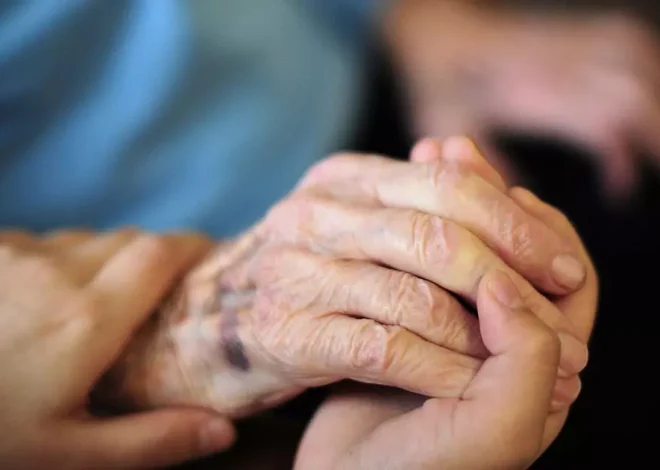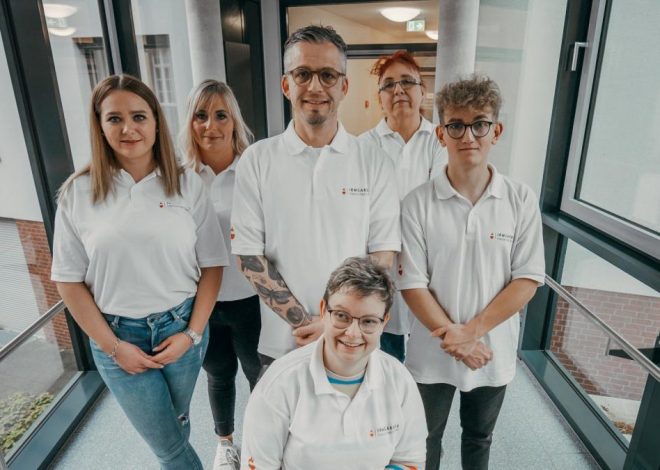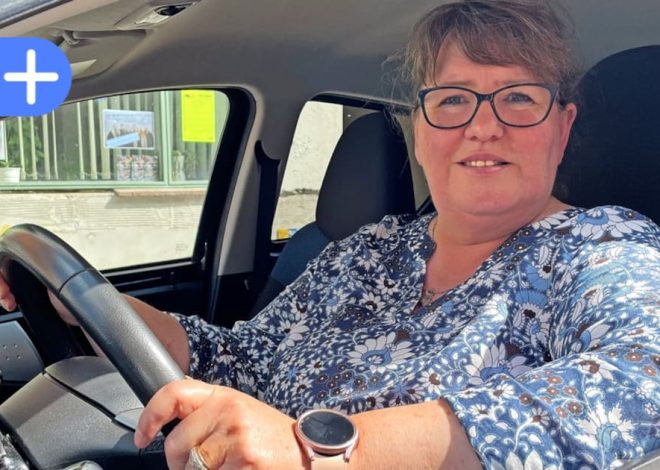
“In nursing I learned what is important in life”
Marcel Mayr was passionate about his job. He worked as a qualified geriatric nurse in a home and studied nursing education at the same time. But from one day to the next everything was over. Mayr says his employer accidentally paid him too much wages. Because he was on vacation and couldn’t pay the money back immediately, he fell out with his bosses. They terminated the contract.
A short time later, Marcel Mayr uploaded a clip to Tiktok out of boredom. After just six hours, more than a million viewers watched the video. “It was crazy how quickly it happened,” says the 29-year-old. He now produces sketches, voice imitations and comedy under the pseudonym Manicoleress. More than 1.5 million users follow him.

“What the old people have already checked and now I have too – my life as a geriatric nurse”, Marcel Mayr, GU Autorverlag, 224 pages, 17.99 euros.
© Publisher
Nevertheless, he continues to volunteer in care. “I am sure the work has made me the person I am today,” says Mayr. He wants to pass on to his young followers what he has learned from the “old ones,” as he affectionately calls the residents of the home. And he wrote a book about his time in care: “What the old people have already checked and I have now too”.
Mr. Mayr, it is always said that young people hardly read anymore.
I consciously decided to read a book. You inhale a book, save it and, ideally, talk about it. Like a movie. I would have thought it would be a shame to waste all that information in an online video, and a blog is quickly forgotten. I am convinced that you express yourself differently when you write something down.
And what have you checked as a geriatric nurse?
What is important in life. It’s not about whether someone is fat or thin, rich or poor, short or tall. It’s all about seeing life as worth living. What fascinated me about my elders was how positive they were. You come from a different time. It was important to help others and to appreciate them. Values that hardly exist anymore. The best thing is spending time with people who are good for you.
You write that you learned from the stories of the ancients why they sometimes act the way they do. Do you have an example?
There are a lot of them. But let’s take the cling film story. Today it’s like this: I’m wrapping a roll in foil. If that doesn’t work, I unpack it again and throw away the foil. The ancients didn’t have anything like that. Many people washed out the foil, let it dry and then wrapped the next roll in it. They have learned to use certain things sparingly and rarely throw anything away. Eating was a privilege for many, but today it is taken for granted. I am very grateful that they taught me this and now I often ask myself: Is this necessary or is there another way?
What else did you take with you?
Once I was extremely annoyed. My colleagues had once again managed to shift tasks onto me. Admittedly, I was always easy prey. When I wanted to get rid of my favorite patient’s frustration, she said to me: “If you want the hot air balloon to fly higher, you have to throw off ballast.” How quickly people complain these days that everything is stupid! It is important to think about what the problem is and what you can perhaps change yourself.
Did you succeed in this case?
Yes, because my favorite resident also told me: “Finally learn to open your mouth and people will treat you with respect.” And above all, always have good arguments ready and stay charming, so no one can harm you.” And that’s exactly what I did. I’ve told my colleagues that I’ll continue to step in in emergencies, but not for tasks that they simply don’t feel like doing. The charming argument still helps me today in negotiations with customers or when I have a job offer.
Anyone who reads your book will feel that you have built relationships with many of the residents. Was that helpful or hindering in your job?
Of course you have to maintain a certain level of professionalism. I had a gentleman who was a bit lazy about showering. He always said: Oh, we’re friends, today we’ll leave the shower behind. Of course that didn’t work, personal hygiene and changing bandages are important. On the other hand, it was beneficial, I could turn the tables and say: Do it for me, then I’ll be happy and joyful.
They broke the rules more often. They let one lady drink her cider and let another light a cigarette. Is the human touch neglected in care?
Definitely. A lot of things are so set in stone and strict: If a resident has an illness, they are no longer allowed to eat this or that. That’s nonsense. Of course, you have to pay attention to blood sugar in people with diabetes. But on a birthday or Sunday it can be a scoop of ice cream. These are small points of joy that make people’s lives more worth living. I remember a woman who loved liqueurs but wasn’t supposed to drink anything sour. But a small glass of the herb didn’t make you fat. Her blood values were exactly the same that evening.
They were very popular with their residents. What have you done differently?
I have always tried to respond to people and the lives they live. Such biographical work is very important in nursing – to get to know the person and to know how I deal with them. There are various nursing theories that provide a list of questions. But it certainly seems strange to someone in a nursing home who may have dementia. That’s why I talked to people while I was washing my body: My God, my fingernails are dirty today. How was it with her husband? And then you start telling the story and gradually learn more about the person. For example about my onion farmer.

Ethel Purdy – Medical Blogger & Pharmacist
Bridging the world of wellness and science, Ethel Purdy is a professional voice in healthcare with a passion for sharing knowledge. At 36, she stands at the confluence of medical expertise and the written word, holding a pharmacy degree acquired under the rigorous education systems of Germany and Estonia.
Her pursuit of medicine was fueled by a desire to understand the intricacies of human health and to contribute to the community’s understanding of it. Transitioning seamlessly into the realm of blogging, Ethel has found a platform to demystify complex medical concepts for the everyday reader.
Ethel’s commitment to the world of medicine extends beyond her professional life into a personal commitment to health and wellness. Her hobbies reflect this dedication, often involving research on the latest medical advances, participating in wellness communities, and exploring the vast and varied dimensions of health.
Join Ethel as she distills her pharmaceutical knowledge into accessible wisdom, fostering an environment where science meets lifestyle and everyone is invited to learn. Whether you’re looking for insights into the latest health trends or trustworthy medical advice, Ethel’s blog is your gateway to the nexus of healthcare and daily living.



